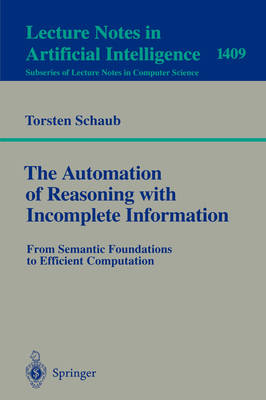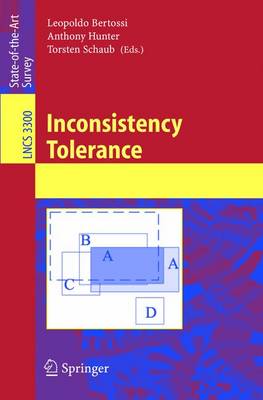Lecture Notes in Computer Science
2 primary works
Book 1409
A versatile way of reasoning in the absence of information is to reason by default. This book aims at providing formal and practical means for automating reasoning with incomplete information by starting from the approach taken by the framework of default logic. For this endeavor, a bridge is spanned between formal semantics, over systems for default reasoning, to efficient implementation.
Book 3300
Inconsistency Tolerance
by Leopoldo Bertossi, Anthony Hunter, and Torsten Schaub
Inconsistency arises in many areas in advanced computing. Often inconsistency is unwanted, for example in the specification for a plan or in sensor fusion in robotics; however, sometimes inconsistency is useful. Whether inconsistency is unwanted or useful, there is a need to develop tolerance to inconsistency in application technologies such as databases, knowledge bases, and software systems. To address this situation, inconsistency tolerance is being built on foundational technologies for identifying and analyzing inconsistency in information, for representing and reasoning with inconsistent information, for resolving inconsistent information, and for merging inconsistent information.
The idea for this book arose out of a Dagstuhl Seminar on the topic held in summer 2003. The nine chapters in this first book devoted to the subject of inconsistency tolerance were carefully invited and anonymously reviewed. The book provides an exciting introduction to this new field.

